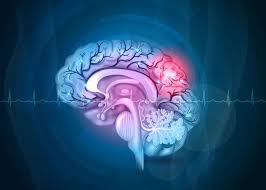- Home
- Editorial
- News
- Practice Guidelines
- Anesthesiology Guidelines
- Cancer Guidelines
- Cardiac Sciences Guidelines
- Critical Care Guidelines
- Dentistry Guidelines
- Dermatology Guidelines
- Diabetes and Endo Guidelines
- Diagnostics Guidelines
- ENT Guidelines
- Featured Practice Guidelines
- Gastroenterology Guidelines
- Geriatrics Guidelines
- Medicine Guidelines
- Nephrology Guidelines
- Neurosciences Guidelines
- Obs and Gynae Guidelines
- Ophthalmology Guidelines
- Orthopaedics Guidelines
- Paediatrics Guidelines
- Psychiatry Guidelines
- Pulmonology Guidelines
- Radiology Guidelines
- Surgery Guidelines
- Urology Guidelines
Increased risk of vascular dementia in heart attack survivors

Heart attack increased the risk of vascular dementia by 35 percent, and the risk remains elevated for up to 35 years after the heart attack.
This is the somewhat disheartening result of a registry-based study from the Department of Clinical Epidemiology at Aarhus University, which has just been published in the journal Circulation.
The researcher behind the study is medical doctor and PhD Jens Sundbøll. As part of his PhD dissertation, he has looked into the number of dementia diagnoses among the roughly 200,000 Danes who survived the first year after a heart attack during the period 1980-2012.
One notable result is that heart attack is not associated with an increased risk of developing Alzheimer's disease, but 'only' an increased risk of vascular dementia.
"A thirty-five percent increased risk is in itself an argument for examining the possibilities for preventive measures such as relevant medications and healthier lifestyle. The importance of prevention is underscored by the fact that, for the majority of dementia diseases, there is no good treatment once dementia has set in," says Jens Sundbøll.
Jens Sundbøll also points to the forthcoming worldwide demographic shift towards an older population as an argument for more targeted efforts to prevent vascular dementia.
The Danish Dementia Research Centre (DDRC) estimates that the current number of Danes suffering from dementia - estimated to be 87,000 - will increase to almost 150,000 in 2040 (Prevalence of dementia in Denmark), and worldwide the horror scenario is that by 2050 up to 131 million people will suffer from dementia (Prevalence of dementia around the world).
"Even though vascular dementia 'only' accounts for around a fifth of the total number of dementia cases, it will still come to affect many people, because the frequency of dementia is increasing. As opposed to most other dementia subtypes, vascular dementia is likely preventable," says Jens Sundbøll.
Vascular dementia is a generic term for dementia caused by vascular damage in the brain, typically blood clots or hemorrhages in the brain. This distinguishes vascular dementia from the major dementia subtype, Alzheimer's disease, which is a neurodegenerative disease that accounts for approximately half of all dementia cases.
In the study, the 200,000 survivors of a blood clot in the heart were checked for every conceivable dementia diagnoses in the Danish National Patient Register and the Danish Psychiatric Central Research Register, before being subsequently compared with a control group consisting of one million people from the background population.
After suffering their heart attack, the patients have been followed over a period of up to 35 years, and according to Jens Sundbøll, the risk of vascular dementia does not level out over time. The increased risk remains continuously increased at 35 percent - also 35 years after the heart attack.
A four-fold increased risk was observed in the patient underwent bypass surgery following the heart attack. On the other hand, patients who undergo the smaller procedure of a balloon angioplasty do not have an increased risk of vascular dementia. According to Jens Sundbøll, it is not necessarily the bypass procedure itself that causes the risk of vascular dementia to explode.
"There is also the possibility that patients who are offered bypass surgery already have more serious circulatory and atherosclerotic problems and hence an increased risk of vascular dementia than patients who are referred to a balloon angioplasty. A registry study is limited by the fact that it does not tell us anything about the cause of the observed association. This has to be clarified in other studies," says Jens Sundbøll.

Disclaimer: This site is primarily intended for healthcare professionals. Any content/information on this website does not replace the advice of medical and/or health professionals and should not be construed as medical/diagnostic advice/endorsement or prescription. Use of this site is subject to our terms of use, privacy policy, advertisement policy. © 2020 Minerva Medical Treatment Pvt Ltd